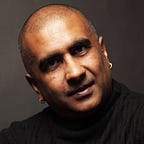It’s not what you think it is.
The Indian Mafia is an insider term for the huge influence that Indian engineers, entrepreneurs, and business executives have in Silicon Valley.
The Indian Mafia came to mind recently, when I was working with a new transplant from the East Coast. I mentioned that if he wanted to better understand APIs (which are template libraries for programming languages), there had to be someone we could talk to. We could just call up the Indian Mafia.
He was shocked.
I had to explain that this isn’t a Mafia with guns and henchmen, patrolling Las Vegas or shipping booze in the prohibition days.
Or is it?
It’s rarely talked about. But it’s there, a huge network with roots in Indian engineering schools like IIT (Indian Institute of Technology), which in my opinion is competitive with MIT and its peers. Some IIT graduates come to work directly for companies in Silicon Valley, while others get a full ride in a prestigious American masters’ program before joining the workforce.
They all share the same strong cultural heritage, but their bond develops further during their time at the engineering schools and in their dorms. After school, they keep in touch or meet regularly, and a lot of their families become friends with each other.
The social network becomes a place to find work opportunities and a backchannel for technology support. It’s also a resource for talking about the challenges they face as immigrants: how to raise children, uphold traditions, and maintain general mental health (which many Americans might do by going to a therapist).
I went to one of the top private schools in India, Modern School, in New Delhi. It goes from the 1st to the 12th grade, and once you graduate you become a Modernite. If you are from Modern you are part of the Elite; the school has a huge representation in Parliament and in all sectors of government and business. You have access to all of this, just because you are Modernite.
The batch you belong to is a subset and provides a closer bond. I graduated in 1983, so I belong to the 1983 batch. We are a close group, and among us we have at least one member in Parliament, the owner of the largest construction company in Delhi and the nation’s largest jewelry store, the CEO of Hughes Software, senior officers in the Indian Army, and tons of very influential businessman.
In the Bay Area, I have 5 batchmates who are very influential, including Anil Godhwani, who with his brother started @web and SimplyHired. He throws a party every year for the Modernites and 200-plus people show up, most representing senior management at tech companies in the Silicon Valley. (And there are always another 100 or so who can’t make it.)
I can call any one of them and ask them to connect me to someone else in their close network, and it will always happen.
If you look at some of the most admired companies in Silicon Valley, there are always a few Indians at the top of the totem pole.
Google has Nikesh Arora, Senior Vice President and Chief Business Officer; Vic Gundotra, Senior Vice President, Engineering; Sundar Pichai, Senior Vice President, Chrome and Apps; Sridhar Ramaswamy, Senior Vice President, Engineering; Amit Singhal, Senior Vice President; and Google Fellow K. Ram Shriram, Board Member. And that’s just tip of the iceberg.
At Facebook, six members of the eight-person leadership team at Facebook, its so-called “Data Brains,” are Indian. http://www.wired.com/wiredenterprise/2013/02/facebook-data-team/
Satya Patel ran products for Twitter till recently.
Indian engineers form the backbone of engineering in Silicon Valley.
Then there is TiE
TiE, a not-for-profit global network of entrepreneurs and professionals, was founded in 1992 in Silicon Valley, California, USA. Although its original name, The Indus Entrepreneurs, signifies the ethnic South Asian or Indus roots of the founders, TiE stands for Talent, Ideas, and Enterprise. It is an open and inclusive organization that has rapidly grown to more than 57 chapters in 14 countries. TiE seeks to cultivate and nurture the ecosystem of entrepreneurship and free-market economies everywhere, as it sees this to be the single most powerful instrument of prosperity.
Besides its flagship event, TiECon — the largest professional conference for entrepreneurs — TiE now has a wide range of programs including Special Interest Groups (SIGs), TiE Institute, Growth Company Forum, and, most recently added, TiE Women’s Forum and CEO Forum.
Every Indian CEO has been a keynote speaker, and most VCs make sure that they are represented there.
There are more than 5000 members in the Silicon Valley Chapter alone.
Then there are the Venture Capital Firms
I think the Venture community got hip to the Indian Mafia a decade ago. Most venture firms have a partner who is an Indian. And there are some very well-known VCs who are Indian; some names that come to mind are Kanwal Rekhi, Yogen Dalal (Mayfield), and Vinod Khosla, a co-founder of Sun Microsystems and former partner at Kleiner Perkins who now runs his own firm, Khosla Ventures, and has for years been known as the best VC in the Valley.
The Indian Mafia constitutes a new, digital-age Mafia. It’s everywhere, and provides backchannel communication and deal-making, coaching, and mentoring — but above all a connection to the culture that we love and come from.
